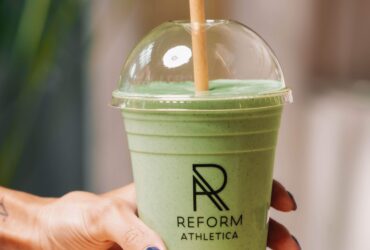
Adjusting to a reduced window of hours that you eat is a challenge in and of itself, and ensuring that you’re fueling your body with essential vitamins and minerals during this window presents itself as an even bigger challenge to many. Let’s start with some basic definitions of vitamins and minerals.
Vitamins are defined as any group of organic compounds that are essential for normal growth. They are a required component of your diet because they cannot be synthesized by the body. Vitamins play several important roles in your body, such as acting as antioxidants to protect your cells, maintaining healthy eyesight and skin, strong bones and normal blood clotting. Vitamins can be obtained through food or supplements, i.e in pill or dissolvable tablet form, but it’s best to try and get your vitamins from natural food sources.
There are 13 essential vitamins: vitamins A, C, D, E, K, and 8 B vitamins.
Minerals are chemical (inorganic) substances that must be ingested and absorbed in adequate amounts to satisfy a wide variety of essential metabolic and/or structural functions in the body. Minerals are more involved with promoting healthy blood pressure, thyroid health, fluid and electrolyte balance, contributing to strong bone health, normal muscle and nerve functioning, and much more.
There are 16 essential minerals: calcium, phosphorus, potassium, sulfur, sodium, chloride, magnesium, iron, zinc, copper, manganese, iodine, and selenium, molybdenum, chromium, and fluoride.
Here’s a great guide to know which food sources are most rich in essential vitamins and minerals.
So how do you make sure you’re getting everything your body needs in a shortened time period? It’s actually quite simple as there are so many food sources that give you big bang for your buck; in other words high nutritional value in a small portion. Here are the main things to keep in mind:
-Eat whole (unprocessed), nutrient-dense foods during Suhoor and/or Iftar; such as fruits and vegetables, whole grains, beans and nuts. Include a variety of colorful vegetables and leafy greens, and avoid filling up on too many dates and dried fruit
-If you like to have soup upon breaking your fast, go for a lighter veggie-based soup instead of one that’s heavy cream or lard-based. This will help you feel lighter and you’ll still have room for other essential foods and food groups
-Make sure your plate has plenty of variety; i.e. making sure one food isn’t dominating your plate. Vegetables, a portion of whole grains (rice, pasta, freekeh etc.), protein and/or legumes such as beans or hummus. A little bit of everything will help you cover more of the essentials and avoid deficiencies that can hinder your body's necessary functions and processes.
So, our main takeaways here are eating whole, unprocessed foods over processed foods as much as possible, and variety. Try not to fill up on one food or food group and eat slowly or take breaks! Eating too much too fast will make you feel very full before you’ve had the chance to properly fuel.
Here’s a nutritious soup recipe that’s loaded with vitamins, minerals and fiber:
2-4 tablespoons olive oil
4 leeks
1 large white onion
4 cups veggie broth
2 cups frozen peas
2 small white potatoes
5 carrots peeled and chopped into circles
1 stalk celery (5-6 pieces)
1 large courgette chopped into semicircles
1 tbsp salt
1 cup chopped parsley
Pepper to taste
Optional: 2 cups frozen edamame or 1 can chickpeas
Thinly chop leeks and onion and put them in your pot with olive oil on low-medium heat
After they’ve softened, add your frozen peas and frozen edamame if you’re using it, veggie broth and salt
Once simmered, add carrots, potato, parsley and celery
Cover for about 10 minutes
Add courgette. If adding chickpeas, strain/wash and add with the courgette and cover another 10 minutes
If you desire more liquid, add more veggie broth or boiling water until you have the desired consistency.
Add more salt as desired and pepper to taste












